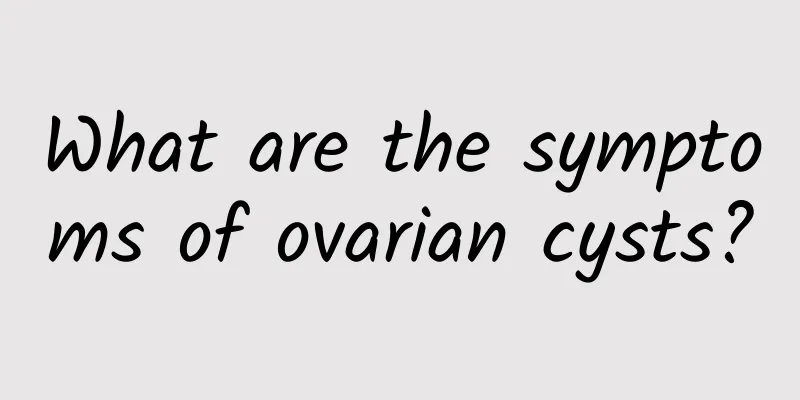What are the symptoms of ovarian cysts?

|
When the cyst is small, no special treatment is required, and regular check-ups are required. If the cyst gradually increases in size, and the tumor markers increase, or if the clinical symptoms are obvious, surgical treatment should be considered. When the tumor grows, you will generally feel abdominal distension, or a mass can be felt in the abdomen. Examination can show that the abdomen is bulging, the mass is mobile, and percussion is generally solid sound without mobile dullness. Ovarian cysts are generally benign. When the cyst continues to grow and fills the pelvic and abdominal cavity, compression symptoms such as frequent urination, constipation, shortness of breath, and palpitations may occur. How to treat multiple ovarian cysts If the cyst is relatively large, there are local compression symptoms, or the cyst is twisted, ruptured, or other symptoms occur, surgical treatment is required at this time to prevent the condition from worsening and to avoid unnecessary harm to the human body. If the cyst is relatively small, there are no obvious clinical symptoms and signs, and it is a benign lesion, most of them do not require treatment, but regular follow-up examinations are required to understand the progress of the disease. Patients with multiple ovarian cysts need to choose an appropriate treatment plan based on the patient's specific condition. If the cyst is slightly larger and caused by inflammatory stimulation, antibiotics can be used for treatment, such as broad-spectrum antibiotics such as cephalosporins. How long does it take for an ovarian cyst to become cancerous? If the ovarian cyst continues to increase in size or grows rapidly in a short period of time, and cysts appear on both ovaries, you should be vigilant, rule out the possibility of cancer, and immediately do relevant examinations, such as CA125, AFP, color Doppler ultrasound or MRI. Video: Ovarian cysts are benign lesions, and the chance of malignant transformation is relatively low. Whether it will become cancerous has no direct relationship with the size of the ovarian cyst. For cysts with solid masses, you must go to a regular hospital for treatment and regular checkups, as there is a chance of cancer. Common follicular cysts and lutein cysts are physiological cysts and will not become cancerous. Regular checkups are sufficient. |
<<: What to do if there is cervical erosion during induction of labor
>>: How can cervical erosion be identified? Does cervical erosion require medication?
Recommend
How long after an abortion can I get an IUD inserted? Are there any requirements for inserting an IUD?
For women, after a painless abortion, choosing an...
Can I clean my vulva after a miscarriage on the same day?
Can I clean my vulva after a miscarriage on the s...
Experts answer whether dysmenorrhea can be cured after marriage
It is understood that many female friends' sy...
How to treat chronic cervicitis with condylomata-like changes? It is recommended to treat chronic cervicitis in this way
The harm of cervicitis to women cannot be underes...
Can diet foods help you lose weight? Doctor: Overdose may harm the body
The Green Dietary Fiber Capsules endorsed by arti...
Exercises to treat pelvic effusion
Women are more likely to be troubled by gynecolog...
What are the examination items for endometrial tuberculosis?
Many diseases have different types according to h...
Is ketogenic diet effective? A comprehensive analysis of the pros and cons of the ketogenic diet!
A year ago, I gave a corporate speech on the topi...
Analysis of the causes of pelvic inflammatory disease
I believe that everyone is familiar with pelvic i...
What are the examination methods for endometrial tuberculosis?
We all know that endometrial tuberculosis is a co...
What causes vulvar leukoplakia
Although the exact cause of vulvar leukoplakia is...
What are the symptoms of pelvic peritonitis
In recent years, as the pace of life of female fr...
There are many reasons why Bartholinitis is difficult to cure
What are the many reasons why Bartholin's gla...
What is mild cervical erosion? Pay attention to 3 nursing measures for cervical erosion
Mild cervical erosion is a normal physiological s...
Does abortion have an effect on adenomyosis?
Adenomyosis is a common gynecological disease. Ma...









